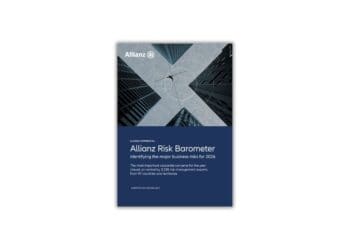Financial services companies are caught between rapidly evolving AI regulations that vary dramatically by jurisdiction, creating compliance nightmares that can stifle innovation. While the EU’s AI Act imposes fines up to €35 million for noncompliance, the US takes a growth-focused approach and Asian markets implement their own transparency requirements. B2PRIME Group’s Alex Tsepaev identifies a critical paradox: while many compliance teams resist AI modernization due to regulatory uncertainty, they’re simultaneously hampering their firms’ ability to compete in an AI-driven market.
Across industries, regulatory compliance grows increasingly harder to manage, but nowhere is the pressure more intense than in finance. Financial firms operate at the intersection of money movement, consumer protection and national security concerns. This means that the stakes are always that much higher and the room for error is that much narrower.
Every transaction, every client relationship and every underlying system are scrutinized thoroughly, and the cost of getting compliance wrong is often not just regulatory — it’s also reputational. If a business offering financial services is not perceived as safe by its audience, then, naturally, no one will want to work with it. It’s an existential factor.
Now, as AI enters the mix, the challenge isn’t just to follow the rules — it’s to keep pace with how quickly they’re changing. Laws are evolving rapidly and often in conflicting directions across jurisdictions — what might pass as acceptable in one country could trigger an investigation in another.
The margin for error narrows seemingly by the day. While the European Union is tightening the screws with the AI Act, the UK is leaning toward regulatory flexibility to boost its competitiveness. At the same time, the US continues to encourage innovation without quite locking in any hard rules yet. Add Asia into the mix, where regulation is equally fragmented but rapidly changing, and what do you get? A worldwide patchwork of rules that’s nearly impossible to navigate without making a misstep somewhere.
This global regulatory divergence creates a fundamental challenge: how can financial companies ensure compliance across jurisdictions without crippling their efficiency? And, just as importantly, would deregulation be a catalyst that drives progress or just a new fad that exposes the financial sector to new forms of risk?
Same game, different rules: The geography of AI regulation
The EU AI Act, which entered into force in August, is probably the most disruptive change we’ve seen in years, demanding a full overhaul of how financial institutions use AI. Every AI system must now be explainable, auditable and under human oversight — or risk fines up to €35 million or 7% of global turnover.
That’s not pocket change, and there’s a big risk that, in the short term, this transition is going to cause AI innovation in this region to stagnate. Many parties would be driven out, unwilling to take on risks of legal blowback, preferring more lenient jurisdictions instead.
Across the pond, the Trump White House’s playbook appears to focus a lot more on “how can we help you grow,” actively recruiting AI talent, forming task forces and holding regular roundtables with industry leaders. I expect that we will eventually see some kind of unified AI regulation framework here, but it will likely be a positive force, fostering AI development rather than adding legal burdens.
Meanwhile, in Asia, we have a mixed bag of rules and outlooks. China, for example, seeks to establish greater control around AI transparency. In March, the government mandated new rules for labeling AI-generated content to ensure accountability and keep the public informed. Before that, in the closing days of 2024, there was talk of Beijing setting up a technical committee to work on standardizing AI industry rules and risk assessment.
In other regions — like India, for instance — there is also a growing focus on safety and responsible use of AI. In early 2025, the country announced the creation of an AI safety institute aimed at promoting domestic AI development and establishing standards for its ethical use.
In short, a lot of progress is happening at the same time but at varying pace. And the end result is that companies operating across borders are left trying to juggle utterly different sets of rules. The heart of the issue isn’t even regulation in itself — it’s the sheer fragmentation of it. And fragmentation, in compliance, leads to inefficiencies that can stifle business growth.
One legal update in Europe might require policy, tech and risk management changes across the board, while US operations keep running as usual. Multiply that further if you’re a business that operates across 10-plus jurisdictions, and you’ve got an endless loop of internal adjustments that pull focus away from getting anything done in terms of actual innovation.
What’s worse, internal roadblocks can exacerbate the problem even further. Many compliance departments still operate as separate units, detached from other departments. This means they rarely talk to product teams, and they are not looped into the overall strategy. And while they are making a genuine effort to consider all legalities, it puts a pause on all product development, slowing down the company’s growth instead of enabling it. That needs to change.
What comes next: The need for a strategic approach
There is no one-size-fits-all answer to the compliance challenges presented by regulatory upheaval over AI in financial services. The path forward requires a strategic balance between technological innovation and regulatory adherence.
Technology, including automation and AI, certainly can help — particularly when it comes to reducing manual bottlenecks. From personal experience, I can say that many compliance teams are still stuck in the past, using email for sensitive workflows and relying on manual review processes.
This outdated approach creates inefficiencies in an environment where regulations are rapidly evolving across different jurisdictions. However, there’s often hesitation toward modernization from compliance departments themselves, especially given the uncertainty about how AI will be treated by various regulators.
Beyond technological solutions, what we truly need is a deeper shift in mindset — financial firms must learn to think of compliance as an integral part of their core business strategy rather than a separate function. This means breaking down silos between departments and embedding compliance thinking into everyday operations and product design. Equipping legal experts with business acumen would also help them better assess how compliance policies affect revenue and client acquisition.
Most importantly, company leadership must drive this integration: CEOs and top management need to elevate compliance to the same strategic priority as product development or market expansion. Compliance isn’t just a regulatory necessity but a competitive differentiator, particularly in our complex regulatory landscape around AI.
The financial institutions that will thrive in this new era will be those that can navigate the patchwork of global regulations while continuing to innovate. By transforming compliance from a perceived roadblock into a strategic advantage, companies can develop AI solutions that are both innovative and compliant across jurisdictions, making scaling in today’s global market not just feasible but sustainable.




 Alex Tsepaev is chief strategy officer at B2PRIME Group, a global financial services provider for institutional and professional clients.
Alex Tsepaev is chief strategy officer at B2PRIME Group, a global financial services provider for institutional and professional clients. 






